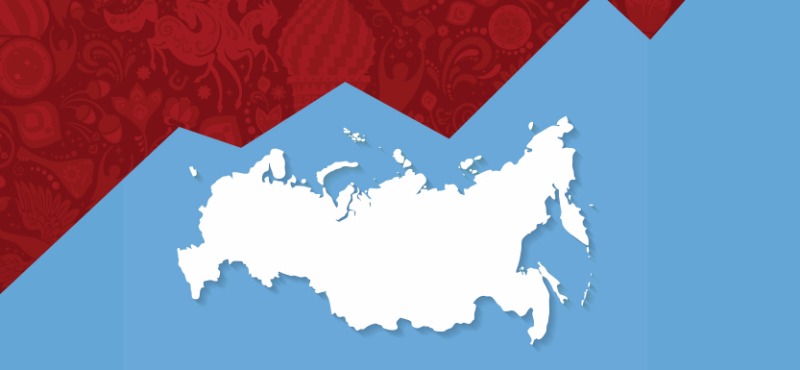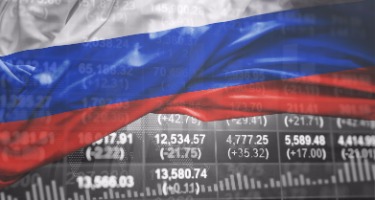Russia’s economic backdrop has been tough for both domestic and global business over the last three years. Slumping energy prices, the sharp drop in the ruble, geopolitical tension, and economic and financial sanctions have hit international perceptions about Russia’s budget and financial system. As a key part of the links between global business and Russia, the legal services sector has been at the center of all this.
Compared to the boom times of the Russian economy between 2003 and 2008, and even when compared to the post-GFC era, the environment has been a difficult one. Yet, compared to the darker days of late 2014, the business environment has probably picked up slightly, and it certainly hasn’t got any worse. International investors, particularly those from Sweden and parts of the EU, are displaying increasing interest. Companies that stayed in Russia and remodeled their businesses to navigate the downturn are starting to see firming sales volumes and are often doing quite well.
The Russian market still presents a major growth opportunity. Russians have very low levels of private debt, and the Russian federal budget deficit (less than 3 percent) also looks quite positive in a global comparison. The increasing sense that energy prices are past their nadir, the resilience of Russia’s economy in the face of the sanctions, and the prospect of the 2018 FIFA World Cup all have the international business community feeling more upbeat, and more global players are firming up Russia plans.
That interest is coming as changes in Russia’s legal system, often implemented with an eye on business, are being bedded down. Key among the changes has been an introduction into the Russian Civil Code of a number of English civil law concepts. Although still in the early stages, they are being used increasingly by businesses and are seen as a significant positive.
The Civil Code amendments have effectively transplanted classical Anglo-Saxon legal concepts into our legislation, and this was quite intentional—reflecting acknowledgment that business was often more comfortable with these than the previous Russian legal concepts affecting business. They are now entering broader legal practice and only the future can tell how case law will shape them and how questions about some concepts, such as warranties and other certain instruments, will be determined. Their inclusion was deliberately intended to provide greater confidence under Russian law for handling business acquisitions, sales, and JV transactions for clients, and they are already being used with good results.
An increase in global interest in Russia will also come after Russian laws see improvement in private property protection. This reflects increased commitment by the Russian government as they prevent geopolitical tensions from translating into on the- ground difficulties for business in Russia. They effectively mean that big, publicly owned global corporations are often more at ease in Russia than even bigger Russian corporations. This is because Russia needs to demonstrate its bona fides in ensuring that political differences won’t hinder business. Plus, these are public companies, unlike Russian majors, where there are often very tight links between the owner and the business. It would be highly unlikely to see a major global company CEO held personally liable in any state, even if shareholders have been fined over an event—as happened to BP in the Gulf of Mexico. But many Russian companies are personified by their ultimate shareholders, and what is “sovereign risk” for global business tends to be seen as a more personal risk here.
Already we are seeing increasing numbers of complex Russian asset deals where parties prefer to use domestic law in deals that previously would have used foreign law. There has also been an extension of fiduciary obligations to act in good faith to those who legally or actually control a company, as well as a broadening of governing bodies. The Supreme Court has eased the standard of proof of damages on breach of contract liability. In January 2016, the way a transaction acquires interests in limited liability companies also changed significantly.
“Russians have very low levels of private debt, and the Russian federal budget deficit (less than 3 percent) also looks quite positive in a global comparison.”
Russia’s legal framework is globally competitive and will continue to evolve to encourage business, whereas global politics will hopefully recede as a factor to consider in Russia’s closer integration with the global economy. With Russian business laws becoming more international and Russia’s economy slowly turning around, we should see more mergers and acquisitions, joint ventures, and global business engagement with Russia.
Our business model at Goltsblat BLP has been to position for this increase, to maintain profitability, and to bolster an ability to invest. This means having the scope to provide news service lines when there is a need for them, as well as maintaining litigation and arbitration strengths. The important factor for both global and Russian business is to make sure that time, effort, and money are focused at the start of any business venture in order to properly address property rights and the legal basis for any business activity. Ensuring that our business adapts alongside the Russian legal system has been the key to growth and will remain so when the Russian economy rebounds.































